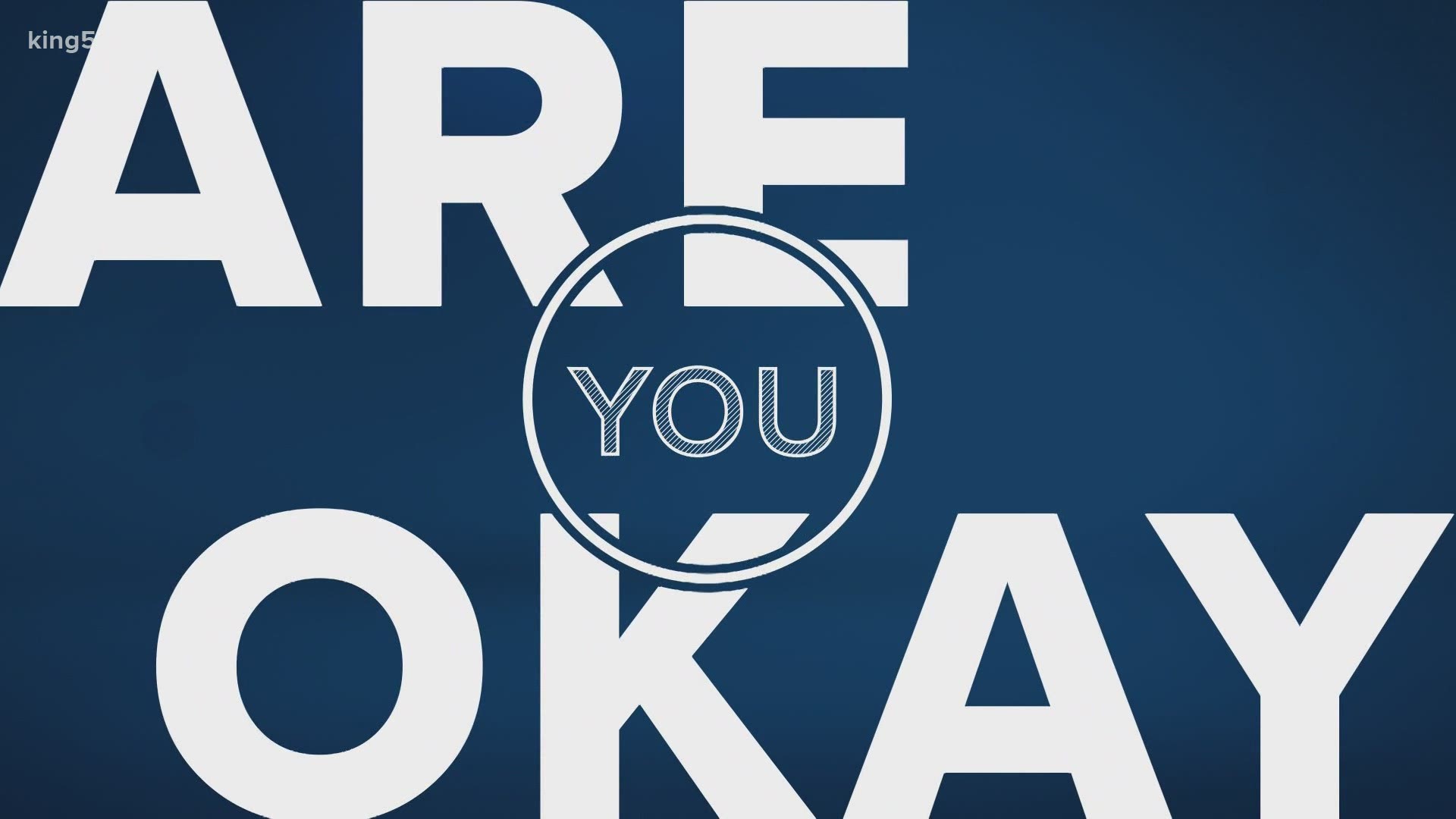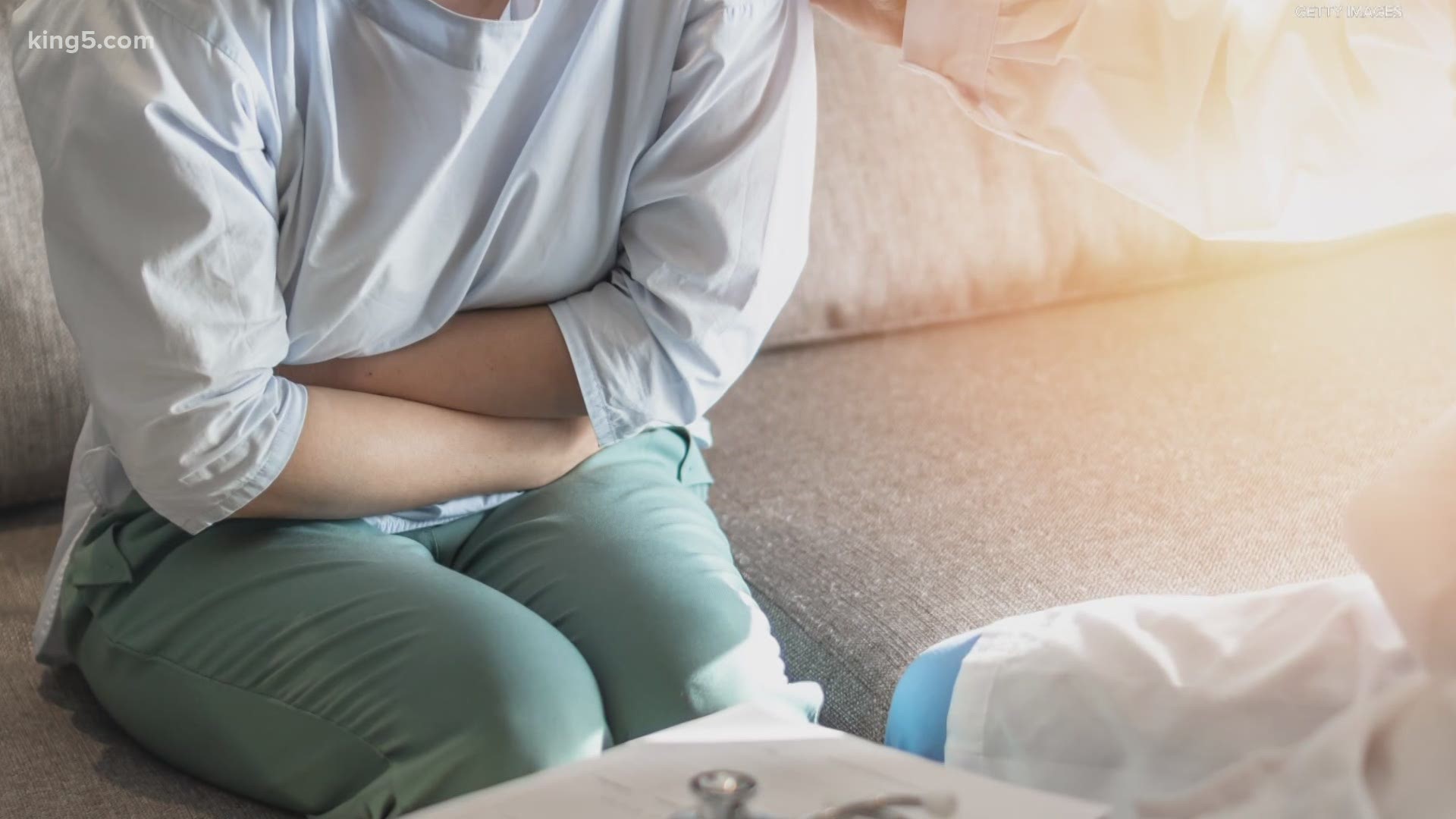SEATTLE — Emergency mental health visits for children and teens are on the rise across the country and here in western Washington.
A recent Centers for Disease Control and Prevention report found that since the start of the coronavirus pandemic, there has been a 24% increase in emergency department visits by grade school children and a 31% increase for teens urgently in need of mental health care.
As part of KING 5's ongoing series Are You Okay? Dr. Chris Ladish, a pediatric psychologist from Mary Bridge Children’s in Tacoma, explained what doctors are seeing. She shared resources to help children, teens and families get help quickly when facing a mental health crisis.
Mental health needs on rise for children and teens
Mental health crisis visits are up about 20% since the beginning of the pandemic at Mary Bridge Children’s Emergency Department. And over the last five years, need for mental health care at Mary Bridge has quadrupled, according to Dr. Ladish.
"The pandemic seems to be intensifying what was already a behavioral health crisis among children and teens," said Dr. Ladish.
Reasons for the large increase are not completely clear. Dr. Ladish agreed that the use of social media can be unhelpful, and the social isolation associated with the pandemic is compounding things.
On a more positive note, one thing that might be helping is the continued de-stigmatization of mental health care. Therapy is no longer taboo and this generation of young people is being encouraged to talk about their emotions.
More mental health resources for children and teens
There are more mental health resources available today.
In Pierce County, Kids Mental Health Pierce County is tackling the issues of youth depression, anxiety and suicide head-on. The nonprofit’s website lists a number of local and national resources.
Dr. Ladish noted that teens often talk to each other about mental health problems. If your child has a phone, Dr. Ladish recommended adding the National Suicide Hotline to their contacts.
Suicide Prevention Line: 800-273-TALK
Additional youth mental health crisis line contact information for western Washington includes:
- Island | Skagit | Snohomish | Whatcom counties 1-800-584-3578
- King County 1-866-4-CRISIS
- Kitsap County 1-888-910-0416
- Mason | Thurston counties 360-586-2800
- Pierce County 1-800-576-7764 | text 741741
How to recognize mental health needs in your child or teen
Children and teens go through phases. Moods shift, sometimes frequently, and some mental health problems come on quickly.
Dr. Ladish said she tells parents not to self-blame, but rather focus on getting mental health care for your child. You can find help with your pediatrician or ask friends about a therapist they see. Another way to find a mental health professional is by calling your insurance company.
Dr. Ladish said everyone’s emotional health is being affected by the pandemic. While some degree of stress and upset is to be expected, you should be aware of some telltale signs in your child that could signal a mental health problem including:
- Changes in sleeping, eating or school performance
- Excessive worry, irritability or aggression
- Withdrawn from social interaction
- Difficulty perceiving reality or confusion
- Ailments with no obvious physical symptom
Help prevent mental health crisis for your child or teen
Just like with other diseases, mental health problems aren’t always preventable. There are some things you can do to create stability for your child or teen. According to Dr. Ladish, establishing routines is helpful to all members of the family.
She recommended:
- Regular sleep: Wake up and go to bed about same time. Limit blue light from phones and tablets before bedtime for better rest.
- Eat well and move often: Eat three healthy meals each day, and help your child get 30 minutes of exercise or movement in. When you can, go outside even if it’s only for a few minutes.
- Good grooming: Create a morning ritual that includes grooming and getting dressed in street clothes (no pajamas all day).
Above all, Dr. Ladish said keep talking. Your kids might not always want to talk but when you make an effort they know you care. Sometimes simple chit-chat in the car, a bedtime conversation, or making food together is a good way start a conversation with your child.


